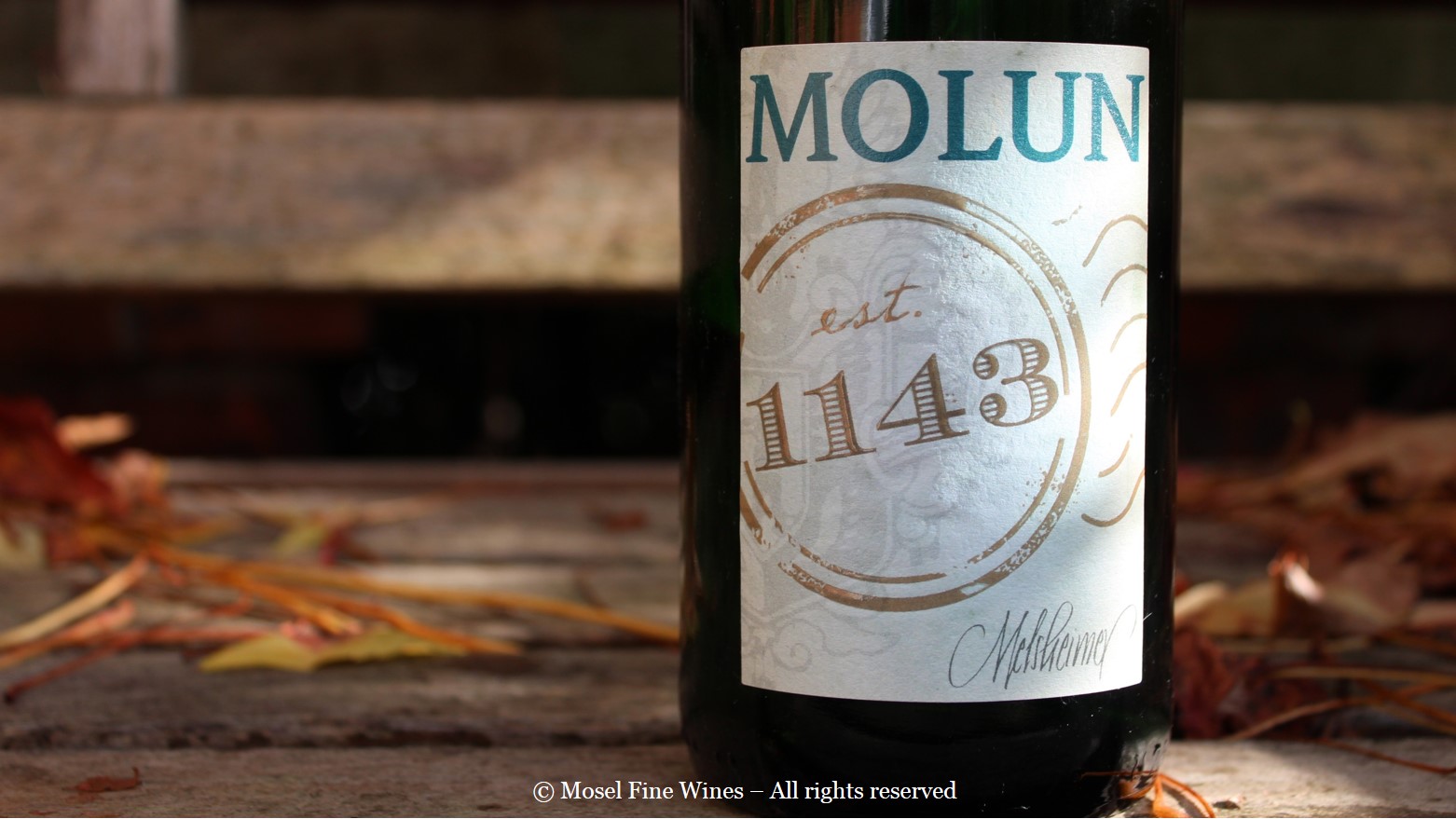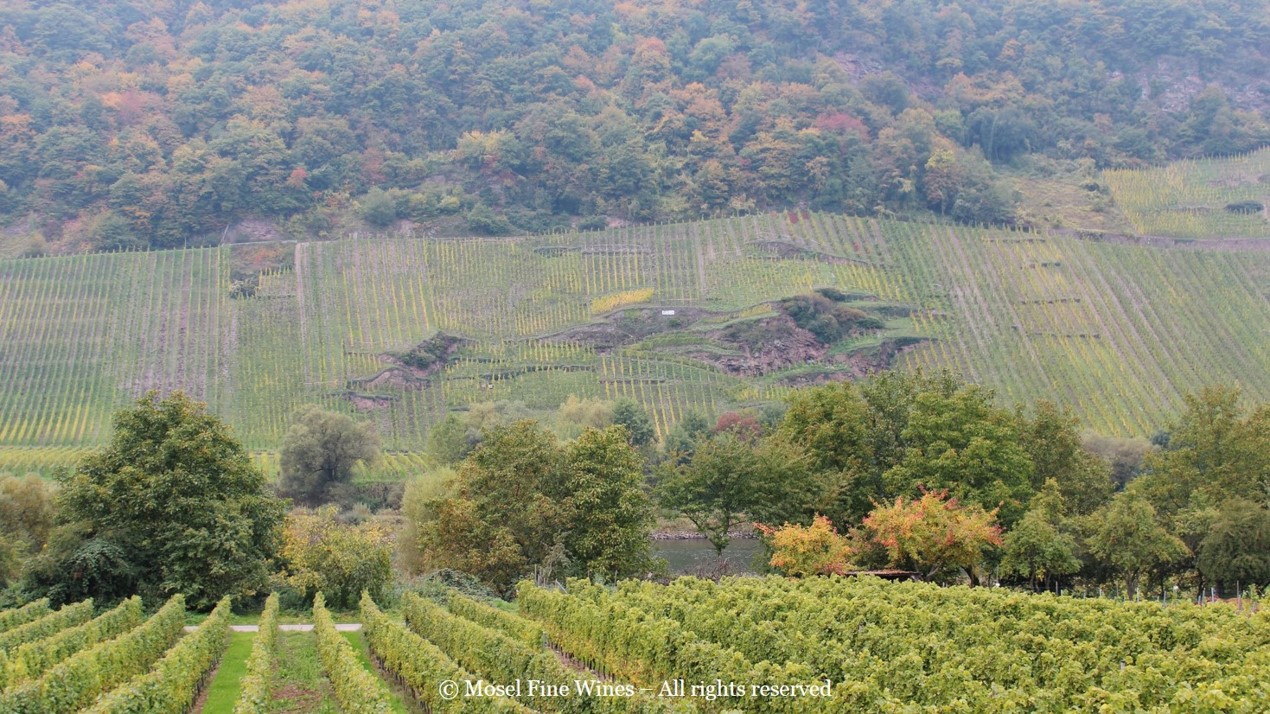December 1, 2015 | News | Wines of the Month

The 2013 Molun proves a highlight from our latest Issue. Learn more on this biodynamically farmed Estate, an under-rated vineyard and a gorgeous wine!

The Weingut Melsheimer is probably less well known to wine lovers outside of Germany, so let us introduce it shortly. The Melsheimer family can look back to two centuries of winemaking in Reil (there are other Melsheimer in the Mosel but they is no direct family relation). Thorsten Melsheimer has been at the helm of the family Estate since 1994 and two aspects have always struck us when talking to him: His deep communion with nature and an incredible passion for terroir.
As soon as he joined the family Estate, he turned it to organic farming (becoming certified in 1997) and has been also following biodynamic principles since 2009, being Demeter certified since 2013. However, he does not put this “upfront.” For him, it is a natural thing to do: “this is the way I am.”
His passion for terroir made his heart set on the Reiler Mullay-Hofberg: “I have a deep respect for these steep hills and I can’t see such a great vineyard living a life of mediocrity or being at risk of being abandoned.” Thanks to smart buys, he grew the Weingut Melsheimer to 11 ha and consolidated a full 8 ha in the steep hill part of the Mullay-Hofberg, where he is almost the sole owner.
Thorsten’s passion for terroir also expresses itself elsewhere. As a founding member of Der Klitzekleiner Ring in 2004, he was one of the driving forces behind the rescue of the parcel in the Trabener Zollturm which the grower organization took on in 2009.
We have been following the Melsheimer wines since the beginning of Mosel Fine Wines in 2008. The House style is one of quite racy, lemon-infused and hugely spicy wines (this comes also from the specific terroir of the Mullay-Hofberg, more on this later). The wines may not “shine” as much as others in their youth but they do gain significantly in finesse with bottle age. The gorgeous 2013 Molun is a perfect example of this racy but complex style.
The pride of the Weingut Melsheimer is its holdings in the Mullay-Hofberg, a steep hill east to south-east facing vineyard. The soil here is a rather stony mix of weathered slate and some quartzite, which is regenerated by larger stones of rather oily slate regularly falling from the steep cliffs above the vineyard. The presence of the forest and a plateau above the vineyard makes for good water retention. For instance, despite the low levels of rain, the vineyard did not experience any stress in the summer of 2015.

This unique terroir combination generates racy and quite citrusy wines loaded with herbs. As Thorsten mentions, “you will rarely find deep yellow fruits in my wines.”
The Estate relies in long fermentation. This is also the case in the Molun, its top dry Riesling made from clean grapes grown on the terraced parts of the Reiler Mullay-Hofberg. The wine undergoes slow fermentation with ambient yeasts in traditional old casks (the 2013 version took 18 months to complete its fermentation!).
The result is a great wine loaded with spices and citrusy fruits which only needs some bottle age to shine.
A review of some Melsheimer wines can be found in Part II of the 2014 Vintage Report published in Issue No 29 (Oct 2015). This Issue is only available to subscribers. Not yet a subscriber? You can become one, free of charge, by simply registering yourself here below.
2013er
Melsheimer
Reiler Mullay-Hofberg Riesling Trocken Molun
11 15
92
The Molun is a dry Riesling made from clean grapes in terraced parts of the Reiler Mullay-Hofberg fermented with ambient yeasts in traditional old casks. The 2013 version took 18 months to complete its fermentation. It offers superb yet restrained scents of star fruit, passion fruit, mirabelle, pear, melon and grapefruit on the nose. Yet the wine explodes on the palate with great flavors of ginger, grapefruit, a hint of tropical passion fruit and coconut, all wrapped into a most stylish blanket of ripe acidity, smoke and minerals. This gorgeous wine is long, fruit-infused and remarkably powerful and present (despite a mere 11% of alcohol). The wine gains with air as riper fruit scents provide for additional depth without ever compromising the airing yet complex side of the wine. This is a terrific effort underlying nicely that great dry Riesling does not need alcohol to shine! 2019-2029+
© Text by Mosel Fine Wines "The Independent Review of Mosel Riesling ... and beyond!"
Disclaimer: Mosel Fine Wines is an independent publication and has no commercial relationship with any Estate, association or organization featured in this article.